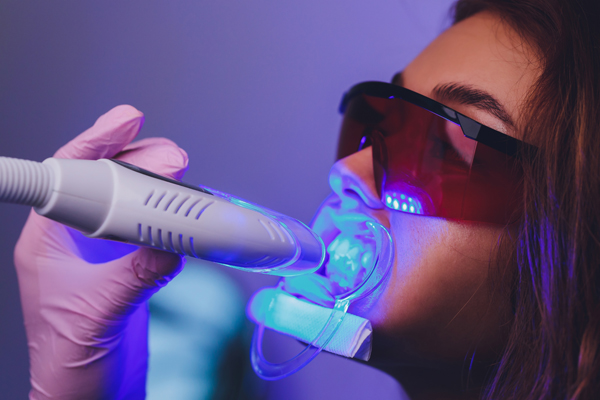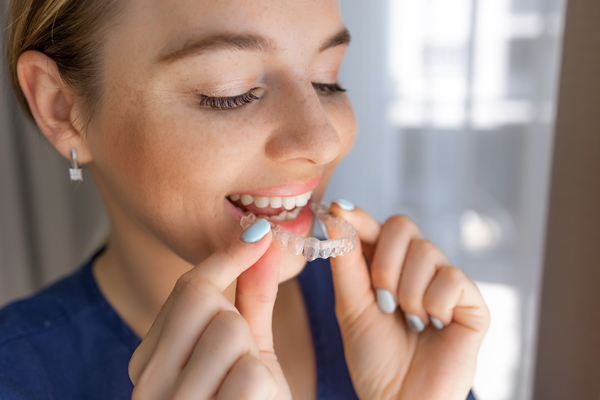A General Dentist Discusses How Dental Bonding Works

If you have a cracked, discolored, or chipped tooth, dental bonding can be a good option. This is a cosmetic dental procedure and can encourage you to smile more. In the procedure, your dentist will apply resin to your teeth that is the same color as your teeth. That can repair any damage. It can be less expensive than getting veneers or crowns.
How does dental bonding work?
This procedure is not as complex as other cosmetic procedures. That means that the patient will not need anesthesia to have it. The only time the patient would need that would be if the dentist were filling a cavity. It also does not require several trips to the dentist’s office.
To begin with, the dentist will use a shade guide to help choose the right color of the resin. It will closely match the shade of the patient’s natural teeth. Then the surface of the teeth will be roughened. A liquid will then be applied.
This will allow the bonding agent to better adhere to the teeth. The composite resin will then be applied on the liquid and the tooth will be shaped or molded. Then an ultraviolet light will be used to help the material better harden. If it is needed, the dentist can shape the tooth more after the resin has hardened.
Choosing dental bonding
One of the advantages of dental bonding is that a defect in the tooth can be repaired. Some patients might have bonding to fix a cracked, discolored, or decayed tooth. That can also help to close smaller gaps in the teeth. That way, the patient will not have to have orthodontic treatment.
Dental bonding can also make a too-small tooth larger. For instance, one tooth might be a little shorter than the others. The patient might want to have every tooth be the same length. The procedure is fast and does not require downtime afterward.
If the patient does not need to have anesthesia, they can go on with a normal daily routine the same day. The procedure will usually take around 30 to 60 minutes. Some appointments can take longer than others. However, this will depend on the procedure’s extent.
Caring for bonded teeth
To extend the life of dental bonding, the patient should floss each day and brush twice a day. It is a good idea to avoid hard candy and food. The patients should not bite their nails. It is good to also avoid tobacco, coffee, and tea for two days after the procedure. That will help to avoid stains. Having regular dental cleanings is also important.
Choose dental bonding today
Having a great smile can boost your self-esteem. If you have chipped teeth, gaps, discoloration, or other issues, you can have them repaired. Your dentist can offer you a consultation. The dentist will determine if this is a good option for you. If not, then you can receive other recommendations for improving your smile.
Request an appointment here: https://www.gatewaydental.org or call Gateway Dental Dr. William Swann DDS at (301) 485-7492 for an appointment in our Bowie office.
Check out what others are saying about our dental services on Yelp: Dental Bonding in Bowie, MD.
Recent Posts
Dental bonding is a simple and effective way to make immediate improvements to the smile by covering stains or fixing small chips, cracks, and gaps in the teeth, providing immediate improvement. The process is painless and quick and does not require major changes to the natural teeth. Those looking for an easy and affordable way…
Dental bonding is a quick, affordable fix that dentists use to correct a wide variety of dental problems. Not only is dental bonding useful as a restoration, it also has cosmetic applications. The fact that bonding is easy to use makes it a popular option with dentists. This is how it works.Dental bonding takes the…
Dental bonding is a simple and pain-free cosmetic procedure that can fix minor imperfections with teeth. Everyone should be able to show off a smile that they are proud of, and many achieve the smile of their dreams through dental bonding treatment. The most notable reasons to consider dental bonding are to fill gaps between teeth,…
Dental bonding is also known as tooth bonding. It involves using a softened composite resin to fix cracks or minor chips in the teeth. The material is pliable, so the dentist can mold it into any shape. It can also be polished to provide a more natural-looking appearance. After this, the dentist can use ultraviolet…


